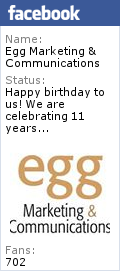I read an interesting article in Parade Magazine a few weeks ago about subliminal advertising. No, I’m not talking about Mr. Subliminal from Saturday Night Live. I’m talking about those subtle ways advertisers are pushing you to buy things without you realizing. Here are some examples from the article:
- Bigger is better, isn’t it? In comparing a lightweight remote to a heavier one, consumers tend to choose the heavier one because it feels more substantial. Oftentimes, all the difference is a useless wad of aluminum, and the price tag.
- But it’s tradition. Do you squeeze a lime into your Corona? Why? Because it’s how it’s been done in Mexico for hundreds of years? Wrong. The ritual was started in the ’80s by a bartender who bet he could start a trend.
- Shop to the beat. When you’re shopping, pay attention to the music. Chances are there’s something calm and slow playing. That’s because stores know you will slow down and spend more if the music’s slow. (That doesn’t explain Old Navy’s loud, fast music, but I don’t think I’m the demographic they’re aiming at anyway).
- Where’s it from? People put a lot of stock into where a product is from. You want your high-end car to come from Switzerland or Germany, not Romania or Milwaukee. You want your big screen tv to come from Japan, not Little Rock. But is it made better because it’s from those places? You can bet not.
- Put stock in the shape. Products come in shapes that appeal to us. In the article, the example was given of a diet mayonnaise product that came in two shapes: an hourglass shape and a rounder version. Guess which one the dieting women bought? The one with the shape they wanted to look like, not the round one.
Here’s another example of how stores get you. Have you ever seen a product at the end of the aisle, like a can of corn, that is, say 4 for $1. Maybe this isn’t that great a deal, but then you notice the sign saying “Limit 8.” Suddenly you feel like you need to stock up on corn. It’s all subliminal marketing.
The next time you’re in the store, pay attention to what you’re doing and see if you can catch subliminal marketing at work!


